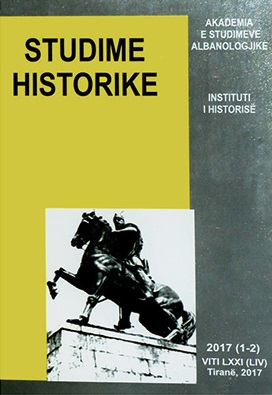Ligji mbi komunitetet fetare i vitit 1929: reagimet e Kishës Katolike dhe Vatikanit
The Law on Religious Communities of 1929: The Reaction of the Catholic Church and the Vatican
Author(s): Hasan BelloSubject(s): Christian Theology and Religion, History of Law, Constitutional Law, Civil Law, Political history, International relations/trade, Politics and religion, Interwar Period (1920 - 1939), Sociology of Religion
Published by: Qendra e Studimeve Albanologjike
Keywords: Law on religious communities; Catholic Church; Vatican; Albanian legislation; national identity; secularism; Constitution; Civil Code;
Summary/Abstract: After the declaration of monarchy the westernizing process continued at the same pace. New laws were added to the legal corps of Albanian legislation, aiming at strengthening the national identity of the state institutions. In service of this policy were also the secularism and the reduction of the role of religion in public life. In the wake of these reforms was approved the decree of 9 July 1929 on religious communities, which contained provisions that enabled them to acquire legal entity status and to draft their statutes or regulations in accordance with the Constitution and the Civil Code. The decree guaranteed freedom of religious communities starting with from the recognition of freedom of conscience and religion of the individual. Approval of statutes compiled by the communities would be made by the government. They entered into force after the decree by the King. Priests were forbidden from participating in political life. Important aspects were articles defining the rights of the state on religious beliefs and on their officials, who also were subject to state control. While Muslims, Orthodox and Bektashi gathered their conventions to prepare statutes and regulations according to the law, Catholic Church refused to take such a step. Given the specific weight percentage of the Catholic population, it could not have strong enough influence to breach political agreement of the government with the religious beliefs. Giovani Cimbalo rightly emphasizes the strength and importance of the Catholic element pertained to international relations, by implying Europe’s sensitivity for it. With the approval of the statute, Catholic Church could not give its institution a national character. This is according to universal laws of Christian doctrine was something unacceptable. Therefore, this problem created a gap in the relations between Albania and the Vatican.
Journal: Studime Historike
- Issue Year: 2017
- Issue No: 01-02
- Page Range: 189-213
- Page Count: 25
- Language: Albanian
- Content File-PDF

